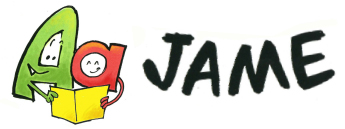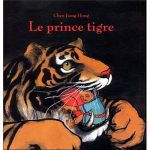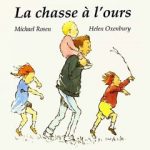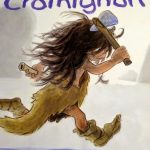Continuing education
We offer our volunteers four opportunities a year to meet and strengthen their knowledge of children's literature, pedagogy or community life. In the form of a happy hour, volunteers can enjoy a wine and cheese buffet and exchange with other volunteers from different sectors. Afterwards, at 7:00 p.m., they can attend a conference given by a special guest or a guided activity prepared by our pedagogical coordinators. The first meeting is usually held during our annual general meeting in the autumn, followed by three further training sessions in December, March and May.
Here are some examples of the topics covered in our latest training courses:
JAME receives Marie-Louise Gay
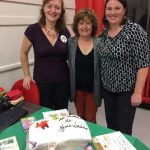
This famous Quebec author and illustrator of children's books (Stella et Sacha, Caramba, Roselyne Rutabaga, etc.) shared with us her illustration techniques and their message to children, as well as her imaginary world, a captivating and magical world where everything becomes possible.
The child's plurilingualism and the importance of valuing the mother tongue.
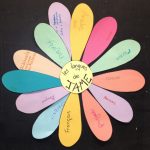
After training with Françoise Armand, professor at the Faculty of Education of the Université de Montréal, our coordinators prepared an evening rich in cultural and linguistic diversity. What are the stages of learning a second language? What are the benefits of bilingualism for children? How can allophone parents be guided to help their children learn French?
Play: at the heart of child development.
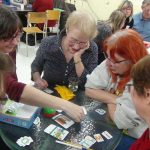
This training evening allowed the volunteers to experiment with all sorts of games and to discover a whole range of new teaching materials that JAME has procured for children with learning difficulties (language delays, hearing disorders, hyperactivity, attention deficit, etc.).
JAME welcomes Michelle Gosselin

Michelle Gosselin, a doctor in psycho-pedagogy and lecturer in education at Université Laval and UQTR, came to lead a workshop on storytelling. She invited us to listen to, reflect on and discuss stories and their particularly important dimension with both adults and children. Her professionalism is based on a great experience of nearly 700 storytelling performances, always followed by discussions with her audience.
The famous Marie B. was among us!
Her intention was to introduce volunteers to the power of illustrations in children's books. She demonstrates how, with all her expertise as a literary animator, her knowledge and know-how, and with the help of beautiful books, it is essential to create a feeling of attachment through illustrations that invite the child to participate in the reading. To find out more about Marie Barguirdjian, visit her blog: www.lebloguedemarieb.com
Reflections on JAME's "values, mission and means".
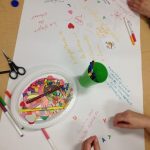
In the midst of strategic planning, J'Apprends avec Mon Enfant invited its volunteers to reflect on the future of the organization. The values, mission, objectives and means to achieve them were discussed in the form of a "World café", after a reminder of the history of JAME by Gillian De Vito, the first coordinator of the home reading program in 1991.
Discussion circles and plenary
Discussion circles and a plenary session for exchanges between volunteers. People sat in the circle of their choice, according to the given problem: "What problems did you encounter during your twinning and what solutions did you find?", "Tell your best memory, your most delicious anecdote", "What are the challenges and advantages/disadvantages of reading in a family from another culture? What were your expectations? What do you gain from volunteering?
To better understand and convey the structure of a story.
The volunteers gathered that evening had the chance to discover the impact of the structure of the story on the development of children's thinking, presented by Mrs Nicole Girard. Afterwards, they had at their disposal different elements to build or reconstruct a story, using books without text, puppets, classic tales or illustrated cards...
Setting up situations
The reading sessions last about an hour. An hour of pleasure that sometimes requires a little more preparation, depending on the difficulties of the child with whom we read! How do you go about it if you are faced with a particular problem with your child: hyperactivity, very large and very noisy siblings, dyslexia, an introverted child or one who does not understand French well. Here are some suggestions shared that evening that may also be useful to you!
